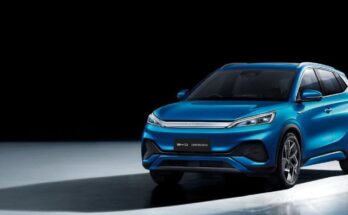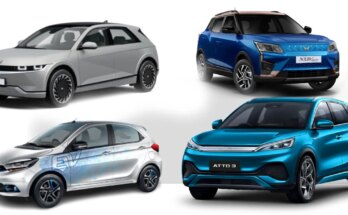The Nexon EV and the Nexon EV Max are the most prominent electric SUVs in the Indian market. The two SUVs, along with the Tigor have clearly put Tata as the reigning champion in the EV market in India. A question that many ask about the Nexon EV (and the EV Max) is – exactly how much does it add to the electricity bill that one pays every month? Here is an answer from a Nexon EV owner.
The owner of this particular Nexon EV is a vlogger and he posted a video on YouTube explaining the details. The video shows a discussion between the vlogger and his friend who is asked to guess the current electricity bill that the vlogger has to pay. When the friend fails, the owner answers that his bill comes to Rs 2,900 per month since he started using the Nexon EV and charging it at home.
Also read: Tata Nexon price increased; Diesel variants discontinued
But wait – his monthly expense on the Nexon EV charging costs are actually lower than that. The vlogger tells his friend that the bill not only includes the cost of charging the EV but also the regular electricity that he uses at home. And that includes all the normal electric appliances such as fans, lights, air conditioner, refrigerator and so on.
What was his bill before he bought the SUV? Unfortunately he does not explain that. But we get a somewhat clear answer. After estimating the cost of electricity excluding that of the Nexon EV, the vlogger says that he would be spending approximately Rs. 1 per kilometer for the car. That looks like a very impressive figure for sure.
So there is your answer. Running cost-wise, electric cars make a lot of sense. The more you drive, the more money you save. For buyers with low monthly running, spending the extra few lakhs on an electric car really does not make sense, unless they are willing to pay a premium for being environment-friendly. But the more you drive, the easier it becomes to recoup the extra one has to pay over a regular petrol variant of the same vehicle.
What are the other factors one should take into consideration, though?
For one, you will have to plan your long trips in advance to ensure that you do not run out of charge before reaching a charging station. And at those stations, you would have to wait for a while as the car gets charged. This might be an irritant for many.
Then comes service costs. Here, the EV owner is a clear winner as service costs for electric vehicles are always lower than that of internal combustion powered vehicles due to lower number of moving parts in the EV.
What about battery life? Well, electric cars are new so there are not enough real-life stories, but so far, there has been no complaints about battery life from owners. In theory, over time, the amount of charge the battery can hold may reduce.
Electric car batteries come with 8 year or longer warranties, and you can always get a troublesome battery replaced free of cost if it gives you trouble. But if the battery crosses that period, you would have to buy a new battery on your own – and the price car companies would charge for that is unclear at the moment. Would they offer a discount to their early customers? We have no idea about what would happen at that point.
Also read: Upcoming 2022 Maruti Suzuki Vitara Brezza rendered
Source link




